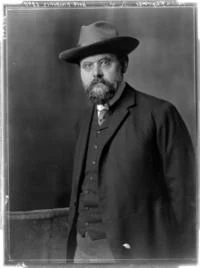Law and mathematics both developed under the steely eye of
the definition. History and literature developed behind definition’s back,
which is why both have a ludicrous bent. To understand the power and essence of
definition, one must free oneself from its seeming inevitability – one must
slip out from literature and history, rather than approach it from law and
mathematics.
Of course, once upon a time, definition was not such a
power. The idea that norms or numbers form a system, and that the system is coherent
and consistent, and that coherence and consistency are systematic – these
ideas, granted, were in the air, but they weren’t taken for granted. This is
not to tell the familiar story of the dreamtime of the folk – it is, rather,
that what a definition is, and why it should have such power, had not yet been
systematically developed. Which is to say that the system as a concept had,
itself, not been systematically developed. There was the moon, stars, tides and
the sun – that is, there was the cosmos – and there were the demons, heroes,
gods, and spirits – there was theology – and, retrospectively, we can see these
as systems. But – to put it in Hegelspeech – the system hadn’t thought of
itself yet.
Once upon a time is the pre-historical category of historical
time, and might be defined by… its lack of definition. Once upon a time does,
however, emerge in history. Although it has the curious property of only being
recognized retroactively – it is like the landscape that is revealed through
the backwindow of a moving car, which, however much we know that it is equal to
the landscape revealed through the frontwindow of the car just a moment ago,
bears the total impression of being behind us – a gestalt-switched twin.
To take a random instance, take IP rights. IP rights bet
everything on definition. But this, up until very recently, wasn’t so.
Take this from Sherman and Bentley’s
The Making of Modern Intellectual Property Law: the British Experience,
1760-1911:
“One of the most important points of contrast
between modern and pre-modern law is in terms of the way the law is organised.
While today the shape of the law is almost universally taken as a given ± the
general category of intellectual property law being divided into subsidiary
categories of patents, designs, trade marks, copyright and related rights ±
under pre-modern law there was no clear consensus as to how the law ought to be
arranged: no one way of thinking had yet come to dominate as the mode of
organisation. Rather, there was a range of competing and, to our modern eyes,
alien forms of organisation. It is also clear that, at least up until the
1850s, there was no law of copyright, patents, designs or trade marks, and
certainly no intellectual property law. At best there was agreement that the
law recognised and granted property rights in mental labour, although the
nature of this legal category itself was uncertain.”
Mental
labor, Sherman and Bentley claim, were treated in modern law the way the old
behavioralists treated ideas and mental events: as irritants and illusions,
having nothing to do with the case. Clearing your mind of mental labor, you go
forward from once upon a time and into the clear light of definitions that are
appropriate for corporate enterprises, or the modern laboratory, or the studio,
or private public collaborations, etc. – all the heavy tinsel of business and
policy speak.
I
mention this to underline the fact that though it may seem quaint to want to
actually examine the philosophical validity of definitions, quaintness can give
way to urgency if the police are at your door and you are accused of providing
links to pirates. It is at that moment that the average schmuck gets a full
glimpse of the armed power of the definition.
And
yet – still, I ask you, what is it? A genre? Is a definition like a poem or an
aphorism or a novel? A piece of language thinking of itself, a piece of
floating meta bumping into our everyday routines? Even asking what it is seems
to bring it up (its shadow swelling ominously) behind me. Is it a god, a demon,
or … after all … a human being?




No comments:
Post a Comment